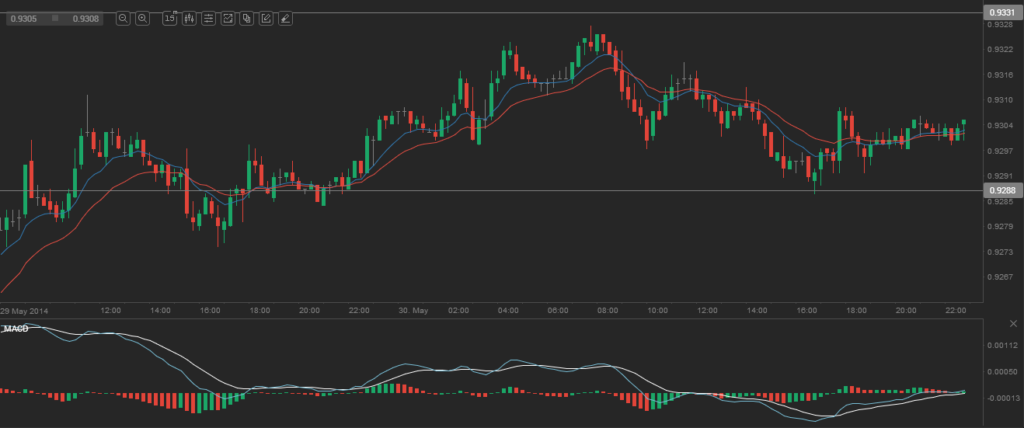During Friday’s trading session AUD/USD traded within the range of 0.9289-0.9330 and closed at 0.9310, gaining 0.02% for the day and 0.86% for the week.
Fundamental view
Australia
At 23:30 GMT on June 1st the Australian Industry Group (AIG) is expected to announce the results from its survey on short-term and intermediate-term conditions in the sector of manufacturing in Australia during May. 200 manufacturers provide their assessment of overall business situation in the sector in terms of employment, new orders, output, prices and inventories. The seasonally adjusted Performance of Manufacturing Index (PMI) for Australia came in at a reading of 44.8 in April. Values below the key level of 50.0 are indicative of contraction in activity. An improvement in the value of this indicator would provide a certain support to Australian dollar.
At 0:30 GMT on June 2nd the University of Melbourne will release its estimate of inflation in Australian economy during May. Annualized inflation estimate for April was 2.8%. In case inflation rate rises, this bolsters the case for an interest rate hike by the Reserve Bank of Australia (RBA), which usually has a bullish effect on the national currency. It is so, as assets, offering higher yields tend to attract more international investors, which will usually increase demand for the domestic currency.
At 1:30 GMT on June 2nd the Australian Bureau of Statistics is to report on the number of building approvals for new projects in construction during April. In April compared to March permits probably rose 1.8%, according to the median estimate of experts. In March compared to February building permits, issued by the government, were 3.5% less. On annual basis, however, the number of building approvals jumped 20% during March. Building permits, as an indicator, provide information in regard to demand in Australian housing market. A higher than anticipated number would have a bullish effect on Australian dollar.
United States
Manufacturing activity in the United States probably expanded during May, with the corresponding index climbing to a reading of 55.4 from 54.9 in the preceding month. The Manufacturing Purchasing Managers’ Index (PMI) is a compound index, which represents manufacturing activity in 20 different industries. It is comprised by four equally-weighted components: seasonally adjusted employment, seasonally adjusted production inventories, seasonally adjusted new orders and supplier deliveries. The index is based on a survey of 300 purchasing managers.
Participants can either respond with “better”, “same”, or “worse” to the questions about the industry, in which they operate. The resulting PMI value is measured from 0 to 100. If the index shows a value of 100.0, this means that 100% of the respondents reported an improvement in conditions. If the index shows a value of 0, this means that 100% of the respondents reported a deterioration in conditions. If 100% of the respondents saw no change in conditions, the index will show a reading of 50.0. Therefore, readings above the key level of 50.0 are indicative of expanding activity in the sector of manufacturing. In case the index rose more than projected in May, this would certainly heighten the appeal of the US dollar. The Institute for Supply Management (ISM) is to release the official figures at 14:00 GMT on Monday (June 2nd).
Technical view
According to Binary Tribune’s daily analysis, in case AUD/USD manages to breach the first resistance level at 0.9331, it will probably continue up to test 0.9351. In case the second key resistance is broken, the pair will probably attempt to advance to 0.9372.
If AUD/USD manages to breach the first key support at 0.9288, it will probably continue to slide and test 0.9269. With this second key support broken, the movement to the downside will probably continue to 0.9248.






